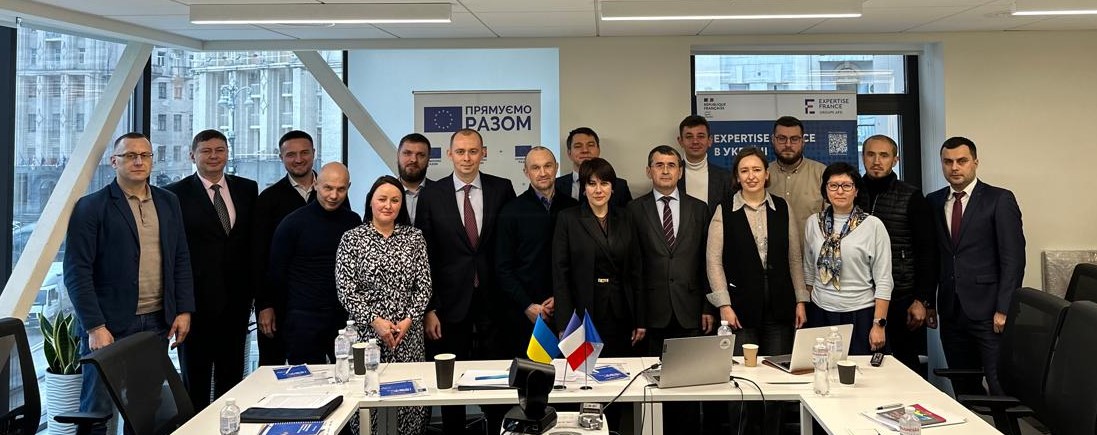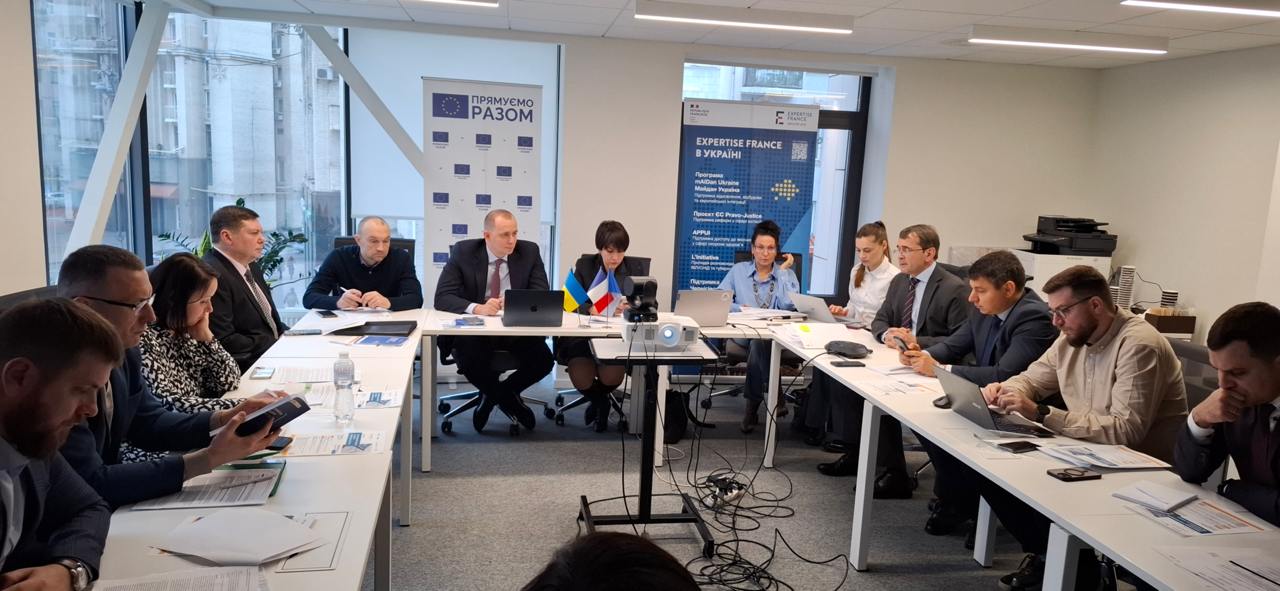EU Project Pravo-Justice Supported a Roundtable Discussion on Remuneration of Bankruptcy Trustees

On 31 January, a roundtable discussion “Remuneration of Bankruptcy Trustees – from Challenges to Solutions” took place. The Council of Bankruptcy Trustees of the city of Kyiv organised the event with the support of EU Project Pravo-Justice. Bankruptcy trustees, judges of commercial courts, justices of the Commercial Court of Cassation within the Supreme Court, banking community representatives, lawyers and EU Project Pravo-Justice experts participated in the discussion.
The roundtable event aimed to discuss the challenges related to the remuneration of bankruptcy trustees and identify collaborative solutions for improving the distribution of financial resources in bankruptcy proceedings.
"Discussing the approaches to setting the remuneration of bankruptcy trustees is an important step toward efficient bankruptcy procedures. Adequate remuneration is not only a matter of economic stability of the bankruptcy trustee, but also a key factor affecting the quality of insolvency procedures," said Iryna Zharonkina, Enforcement and Protection of Property Rights Component Lead of EU Project Pravo-Justice.
According to her, there are different models for determining the fees of bankruptcy trustees around the world: a fixed rate (Germany), extra bonuses for keeping the business operational (France), and hourly rates (UK). However, they all share a common principle – the bankruptcy trustee must receive adequate remuneration for successful work.
"Another essential aspect common for many countries is that the remuneration system envisages pre-financing of the bankruptcy trustee’s expenses, which makes the procedures much more efficient," said Iryna Zharonkina.
Artur Meheria, President of the Council of Bankruptcy Trustees of the city of Kyiv, noted that the remuneration of bankruptcy trustees is a matter of dignity, fairness and ability to perform their professional duties effectively.
"Nowadays, bankruptcy trustees have a guaranteed fee for only 3 months of work. After that, the matters get controversial. This roundtable gives us an opportunity to come up with effective solutions to overcome our current problems via a discussion," said Artur Meheria.

Oleh Vaskovskyi, justice of the Commercial Court of Cassation within the Supreme Court, addressed the question of bankruptcy trustees’ remuneration through the prism of the European Court of Human Rights.
"The case Fesenko v. Ukraine confirms that delays caused by failure to pay remuneration to a bankruptcy trustee are a systemic problem that needs to be addressed immediately", the justice emphasised.
At the event, Kostiantyn Leonov, a bankruptcy trustee, presented a version of the draft amendments to the Bankruptcy Code on governing the remuneration of bankruptcy trustees.
"The proposed amendments foresee a mechanism that removes the burden of obtaining extra approvals for the payment of remuneration and guarantees that it will be paid. When considering issues related to the procedures for disposal, rehabilitation, liquidation, etc., the court will independently decide on the payment of the core monetary remuneration, which will be funded by creditors proportionally to the amount of their recognised claims," explained Kostiantyn Leonov.
The roundtable participants suggested creating a fund that would serve as a guarantee for the bankruptcy trustee’s work and facilitate the consideration of cases. Meanwhile, banking community representatives expressed their willingness to finance the remuneration of bankruptcy trustees at the expense of collateral, provided that the bankruptcy proceedings are not delayed.
The panellists also mentioned that it is essential to clarify the legal status of the bankruptcy trustee – whether he is an official or an entrepreneur. Currently, there are different interpretations of the legislation regarding this issue.
As a follow-up of the roundtable, representatives of the Council of Bankruptcy Trustees of the city of Kyiv will structure the proposals raised in the form of draft legislative amendments and submit them to the stakeholders for further coordination.